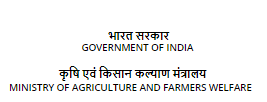Print
PDF
Publish Date : 06-01-2025
Description : To revolutionise the banana growing industry; Agrinnovate India Ltd. (AgIn), Department of Agriculture Research and Education (DARE) has facilitated the transfer of “ICAR-CISH Bio immunisation technology” to M/S Jain Irrigation System Ltd. (JISL), on dated 30.12.2024, enabling the farmers to obtain the diseases free banana tissue culture plants immunised against fusarium wilt/Panama diseases. The exchange of MoU took place between AgIn, and ICAR-Central Institute for Sub-tropical Horticulture, Lucknow (ICAR-CISH) and M/S JISL, Jalgaon Maharashtra in the presence Dr. Praveen Malik, CEO, AgIn, Dr. T Damodaran, Director ICAR-CISH, Dr. V B Patel, ADG, Indian Council of Agriculture Research (ICAR), Mr. Ajit B. Jain, Jt MD., Mr. Krishan G Thakur, BM, AgIn, Dr. Bal Krishna including other scientific community JISL and banana growers. Dr. Praveen Malik explained that how this collaboration is poised to bring significant benefits to the banana growing farmers of the region. Dr. V B Patel, ADG, ICAR termed this as a major initiative taken by JISL for the benefit of banana farmers in the country. Dr. T. Damodaran, Director of CISH stated that the Bio-Immunization is an innovative technique mediated through bio-engineering of metabolite-based biomolecules (bio immune) inoculated at in-vitro stage to produce Fusarium oxysporum sp. Cubense TR-4 tolerant banana plants. Mr. Ajit Jain, Jt. Managing Director, JISL stated that Fusarium Wilt disease is the major threat for banana growers in India. JISL, being a world leader in the production of tissue culture, raised banana plants, is always keen to adopt advanced technologies to secure the future of the crop and farmer and ensure food security through agriculture sustainability in the country. JISL will soon start supplying the bio-immunized tissue culture banana plants to the banana farmers which will certainly minimize the risk of the crop loss ensuring sustainable income to the farmers.
Agrinnovate India Ltd. (AgIn), Department of Agriculture Research and Education (DARE) has facilitated the transfer of “ICAR-CISH Bio immunisation technology” to M/S Jain Irrigation System Ltd. (JISL)
Publish Date : 06-01-2025
Description : To revolutionise the banana growing industry; Agrinnovate India Ltd. (AgIn), Department of Agriculture Research and Education (DARE) has facilitated the transfer of “ICAR-CISH Bio immunisation technology” to M/S Jain Irrigation System Ltd. (JISL), on dated 30.12.2024, enabling the farmers to obtain the diseases free banana tissue culture plants immunised against fusarium wilt/Panama diseases. The exchange of MoU took place between AgIn, and ICAR-Central Institute for Sub-tropical Horticulture, Lucknow (ICAR-CISH) and M/S JISL, Jalgaon Maharashtra in the presence Dr. Praveen Malik, CEO, AgIn, Dr. T Damodaran, Director ICAR-CISH, Dr. V B Patel, ADG, Indian Council of Agriculture Research (ICAR), Mr. Ajit B. Jain, Jt MD., Mr. Krishan G Thakur, BM, AgIn, Dr. Bal Krishna including other scientific community JISL and banana growers. Dr. Praveen Malik explained that how this collaboration is poised to bring significant benefits to the banana growing farmers of the region. Dr. V B Patel, ADG, ICAR termed this as a major initiative taken by JISL for the benefit of banana farmers in the country. Dr. T. Damodaran, Director of CISH stated that the Bio-Immunization is an innovative technique mediated through bio-engineering of metabolite-based biomolecules (bio immune) inoculated at in-vitro stage to produce Fusarium oxysporum sp. Cubense TR-4 tolerant banana plants. Mr. Ajit Jain, Jt. Managing Director, JISL stated that Fusarium Wilt disease is the major threat for banana growers in India. JISL, being a world leader in the production of tissue culture, raised banana plants, is always keen to adopt advanced technologies to secure the future of the crop and farmer and ensure food security through agriculture sustainability in the country. JISL will soon start supplying the bio-immunized tissue culture banana plants to the banana farmers which will certainly minimize the risk of the crop loss ensuring sustainable income to the farmers.


